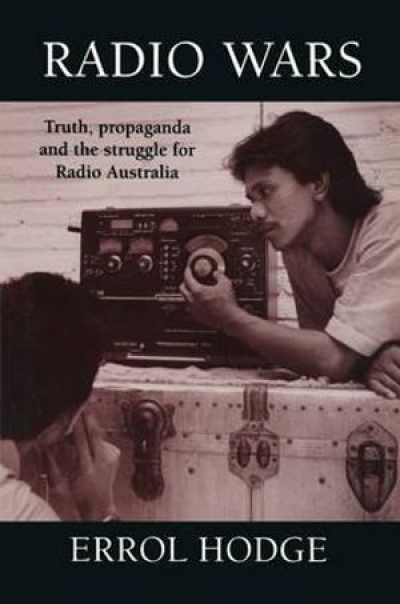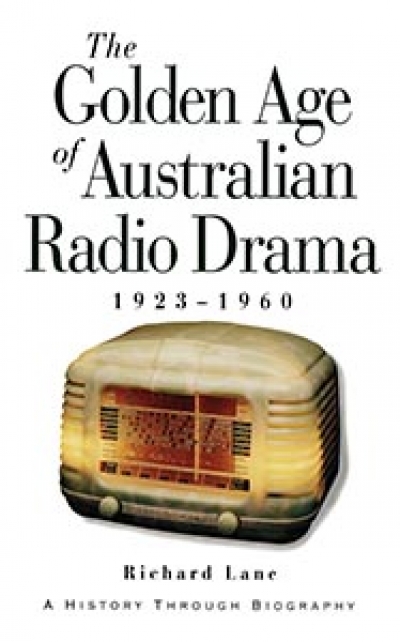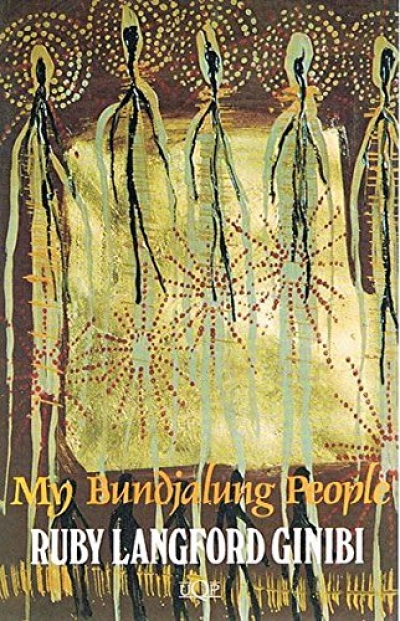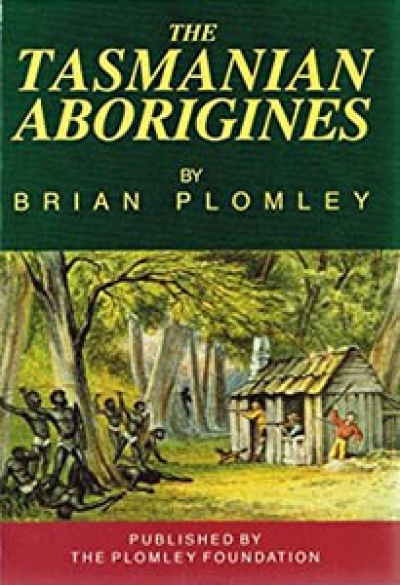History
Some time ago, I was curious about steam cars and found an advertisement, dating from the 1920s, for the sole Victorian distributor of the Stanley Steamer. The address was Flinders Lane, the street in Melbourne which exudes more personality than most of the others combined. I discovered that the building in question had been turned into a printshop. But its origins as a motor garage were obvious. Such unprepossessing buildings as service stations survive more by good luck and stubbornness than by design. So I was strangely impressed. All the more so because Flinders Lane now boasts a boutique hotel with a swimming pool that overhangs the street. You can paddle out and look down on the traffic swimming below you like the lost city of Atlantis.
... (read more)Radio Wars: Truth, propaganda and the struggle for radio Australia by Errol Hodge
The arguments about control of the media seldom mention radio. Yet, because it is cheap to operate, portable, and user-friendly, radio is powerful and governments are always mindful of its potential.
... (read more)Sailing to Australia: Shipboard diaries by nineteenth-century British emigrants by Andrew Hassam
‘There was nothing in particular to write about either yesterday or the day before, as, indeed, there is not today.’ Fifteen-year-old Arthur Clarke speaks, in 1868, for many of us whose diaries didn’t live up to our hopes of them. Why do we write them?
... (read more)Like Manning Clark, Blainey sees history as a story of progress in which Western civilisation develops from a kind of primal baseline. But the dynamic force which drives events in Blainey’s history is more tangible-more material-than in Clark’s. As Blainey himself explains, he regards technology and economics as being far more important agents of change than politics. He locates the origins of modem industrial culture in the Middle East, at that moment when hunter-gatherers first settled in villages and began systematic farming. This neolithic revolution, says Blainey, was more significant to human development than the beginning of the industrial revolution: ‘It led to the collection of taxes, the rise of powerful rulers and priests, to the creation of armies larger than any previously known.’ As this revolution gradually spread into Europe, America and Asia, new societies ‘blossomed and bloomed’ because an increasing proportion of their populations was freed from food production to pursue other activities. They were free to write, think, scheme and invent things.
... (read more)The Golden Age of Australian Radio Drama, 1923–1960: A history through biography by Richard Lane
In recent times, we hear, stars of TV serials such as Neighbours and Home and Away have been mobbed on arrival at Heathrow Airport, and recognized even in Finland – Australian production houses appear to have a talent for capturing on screen alluring fantasies and traumas for purveying to mass audiences, both home and away. The foundations for this sorely-needed export industry were doubtless laid in the 1940s and 50s, when Australian radio serials and drama were heard around the globe, at least in English-speaking countries (subtitles are difficult on radio). At home, hundreds of hours of drama were pumped out every year on ABC and commercial stations ...
... (read more)Contemporary Aboriginal writing, like Aboriginal art, is now so diverse that is impossible to talk about any one particular style. John Muk Muk Burke, whose first novel, Bridge of Triangles, has just been published, recently told a Sydney seminar for Aboriginal writers that they were no longer writing from the viewpoint of victims. He said they were survivors rising from the ashes of the invasion like the phoenix. Burke’s own novel is multi-layered, poetic and visually strong, with a structure informed by his study of world literature.
... (read more)An Officer of the Blue: Marc-Joseph Marion Dufresne: South Sea Explorer, 1724–1772 by Edward Duyker
The title of this book has a faint dash of Ouida, but actually it signifies not a dashing cavalry regiment but the officiers bleus of the French navy under the Ancien Regime, who were not of the nobility and so socially inferior to their aristocratic colleagues, though often (or usually) superior as seamen. Duyker has written a good businesslike account of a remarkable career. The book is very well presented, with genealogies, bibliography and glossary, many plates (some in colour), and above all plenty of maps. An appendix by Rex Nan Kivell recounts his rescue, in the confusion at Calais when the German’s were overrunning France in 1940, of the painting of Marion’s death. He rolled up the canvas and stuffed it down his trouser leg, doubtless walking rather stiffly. A wry footnote to history.
... (read more)Travellers in a Landscape: Visitors’ impressions of the Darling Downs 1827–1954 by Maurice French
This is Maurice French’s sixth work on the Darling Downs. An Associate Professor of History and Dean of the Faculty of Arts at the University of Southern Queensland, he is ideally placed to study this fertile plateau in south-east Queensland, reputedly the richest agricultural land in Australia.
... (read more)Joseph Banks and the English Enlightenment: Useful knowledge and polite culture by John Gascoigne
In recent years, scholars have attempted to come to grips with the prodigious range of Sir Joseph Banks’s activities during a public career that lasted more than fifty years. Wherever one turned in the establishment circles of George III’s England there stood, it seemed, the massive figure of Joseph Banks: President of the Royal Society, Privy Councillor, adviser to government, patron of the sciences, Cook’s sailing companion and ‘Father of Australia’ for some, the moving force behind the African Association and ‘Father of African Exploration’ for others.
... (read more)This is a sad, short book – sad in more ways than one. It is the last work of this century’s greatest authority on the Tasmanian Aborigines. It is the distillation of sixty years of detailed and diverse work. And it is deeply flawed.
Brian Plomley, who died earlier this year, was best known for his doorstop volumes on the original Tasmanians (The Friendly Mission and Weep in Silence). For these we owe Plomley a great debt. He dedicated decades of his life to getting inside the mind of G.A. Robinson, the so-called Conciliator of Tasmania’s last tribal Aborigines. His insights into that man and his era, and the thoroughness of his work on the thinly-spread evidence of pre-European Aboriginal culture in Tasmania, are unique. They would lead us to expect the present slim volume to be a rich distillation. Instead the undoubted riches are contaminated by errors both of fact and judgement.
... (read more)









